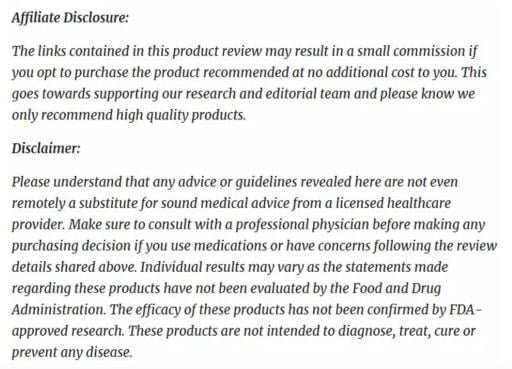High Cholesterol: A Detailed Customer Review 2024
High Cholesterol: A Detailed Review
Introduction
High cholesterol, also known as hypercholesterolemia, is a prevalent health condition characterized by elevated levels of cholesterol in the blood. This review explores the causes, effects, diagnosis, treatment options, and lifestyle considerations related to high cholesterol.
Understanding Cholesterol
What is Cholesterol?
Cholesterol is a waxy, fat-like substance found in every cell of the body. It is crucial for various physiological functions, including cell membrane structure, hormone production, and bile acid synthesis.
Types of Cholesterol
Cholesterol circulates in the blood in two main forms:
- Low-Density Lipoprotein (LDL): Often referred to as “bad” cholesterol, high levels of LDL can lead to plaque buildup in the arteries, increasing the risk of cardiovascular diseases.
- High-Density Lipoprotein (HDL): Known as “good” cholesterol, HDL helps remove LDL cholesterol from the bloodstream and transport it to the liver for excretion.
Causes of High Cholesterol
Several factors contribute to high cholesterol levels:
- Dietary Choices: Consumption of saturated fats, trans fats, and cholesterol-rich foods.
- Genetics: Family history and genetic predisposition to high cholesterol.
- Lifestyle Factors: Lack of physical activity, smoking, and excessive alcohol consumption.
- Health Conditions: Conditions like diabetes, hypothyroidism, and kidney disease can affect cholesterol metabolism.
Effects of High Cholesterol
Health Implications
High cholesterol levels can lead to various health complications:
- Atherosclerosis: Buildup of plaque (cholesterol deposits) in the arteries, narrowing blood flow and increasing the risk of heart disease and stroke.
- Coronary Artery Disease: Reduced blood flow to the heart muscle, potentially leading to angina (chest pain) or heart attack.
- Peripheral Artery Disease: Narrowing of arteries supplying blood to the extremities, causing pain and potentially leading to tissue damage.
- Stroke: Blockage of blood flow to the brain due to plaque buildup or blood clots.
- Xanthomas: Deposits of cholesterol under the skin, particularly around the eyes or tendons.
Diagnosis of High Cholesterol
Screening and Tests
High cholesterol is often diagnosed through a lipid panel blood test, which measures:
- Total Cholesterol: Combined levels of LDL, HDL, and other lipoproteins.
- LDL Cholesterol: Main carrier of cholesterol in the blood.
- HDL Cholesterol: Carries cholesterol away from the arteries to the liver.
- Triglycerides: Another type of fat in the blood, elevated levels may also contribute to cardiovascular risk.
Treatment Options
Lifestyle Modifications
- Healthy Diet: Emphasizing fruits, vegetables, whole grains, lean proteins, and omega-3 fatty acids. Limiting saturated fats, trans fats, and dietary cholesterol.
- Regular Exercise: Engaging in aerobic exercise (e.g., brisk walking, jogging, cycling) most days of the week.
- Weight Management: Achieving and maintaining a healthy weight through diet and exercise.
- Smoking Cessation: Quitting smoking to improve HDL levels and overall cardiovascular health.
- Moderate Alcohol Consumption: Limiting alcohol intake to promote HDL cholesterol levels.
Medications
- Statins: Most commonly prescribed medications that lower LDL cholesterol production in the liver.
- Ezetimibe: Helps reduce cholesterol absorption in the intestines.
- PCSK9 Inhibitors: Newer medications that lower LDL cholesterol levels for individuals with familial hypercholesterolemia or those at high cardiovascular risk.
Combination Therapy
- Statins Plus Ezetimibe: Combined approach for individuals needing additional LDL cholesterol reduction.
- Lifestyle Plus Medication: Integrating medication with ongoing lifestyle modifications for comprehensive management.
Dietary Supplements and Alternative Therapies
Omega-3 Fatty Acids
- Found in fish oil supplements, omega-3 fatty acids may help lower triglycerides and reduce cardiovascular risk.
Plant Sterols and Stanols
- Natural compounds found in certain foods and fortified products that can lower LDL cholesterol levels.
Red Yeast Rice
- Contains compounds similar to statins, which may help lower cholesterol levels.
Lifestyle Considerations
Dietary Guidelines
- Adopting a Mediterranean-style diet rich in fruits, vegetables, whole grains, and healthy fats.
Physical Activity
- Engaging in regular aerobic exercise and strength training to support cardiovascular health.
Stress Management
- Practicing stress-reducing techniques such as yoga, meditation, or mindfulness to promote overall well-being.
Monitoring and Follow-Up
Regular Health Check-ups
- Routine monitoring of cholesterol levels and overall cardiovascular health with healthcare providers.
Personalized Care
- Tailoring treatment plans to individual needs based on risk factors, genetics, and response to therapies.
Conclusion
High cholesterol is a significant risk factor for cardiovascular diseases and other health complications. Effective management involves a multifaceted approach, including lifestyle modifications, medication when necessary, and ongoing monitoring. By adopting healthy habits and working closely with healthcare professionals, individuals can reduce cholesterol levels, improve overall health, and lower their risk of heart disease and stroke.
Future Directions
Ongoing research continues to explore new therapies and approaches for managing high cholesterol effectively. Stay informed about advancements in lipid management and cardiovascular health for optimal prevention and treatment strategies.


